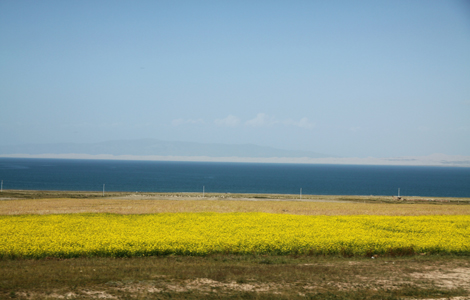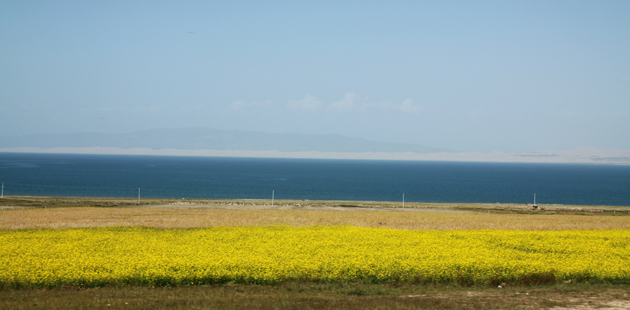Global leaders struggle to calm recession fears
Updated: 2011-09-23 16:03
(Agencies)
|
|||||||||||
WASHINGTON?- The world's major economies are pledging to take strong actions to restore financial stability and calm financial markets that plunged on Thursday over renewed fears that the global economy was headed toward a new recession.
Finance officials of the Group of 20 major economies issued a statement late Thursday saying they were committed to a strong and coordinated response to renewed challenges coming from the European debt crisis and weak economic growth in the United States and other countries.
The finance officials of traditional economic powers such as the United States, Japan and Germany and major emerging nations such as China want to demonstrate strong resolve in the hope that it will calm jitters that had sent financial markets down sharply.
"We are taking strong actions to maintain financial stability, restore confidence and support growth," the G-20 joint statement said. "We commit to take all actions to preserve the stability of banking systems and financial markets as required."
Treasury Secretary Timothy Geithner and Federal Reserve Chairman Ben Bernanke represented the United States at the meeting.
The G-20 group, which includes officials from countries that represent 85 percent of the global economy, had not been originally scheduled to issue a statement after Thursday's meeting. But officials said the decision was made to put out a joint statement as a way to show resolve in the face of Thursday's market turbulence.
French Finance Minister Francoise Baroin told reporters at a late night briefing that the statement represented a "strong global" response to what he called a "very serious situation."
He said the G-20 group believed "there is a way out of this crisis."
A senior US Treasury official who briefed reporters on condition of anonymity to discuss the closed-door discussions said that all the countries felt there was a sense of urgency to take strong actions to deal with the financial market turmoil.
Investors are worried that Europe's debt crisis could destabilize the global economy. The United States is limping along with slow growth, 14 million unemployed and millions stuck with homes worth less than what is owed on the mortgage.
The Dow Jones industrial average sank 391 points for the day. The second-straight day of massive losses on Wall Street coincided with the start of the annual meeting for the 187-nation International Monetary Fund and its sister lending institution, the World Bank.
"The current economic situation is entering a dangerous phase," said Christine Lagarde, the head of the IMF.
"I still think a double-dip recession for the world's major economies is unlikely, but my confidence in that belief is being eroded daily," World Bank President Robert Zoellick said.
On Wednesday, stocks had tumbled after the Federal Reserve expressed new concerns about the US economy and the growing risks in Europe. The Fed also announced a plan to try to lower long-term interest rates further by shuffling the makeup of its portfolio.
The gathering of world finance leaders comes at a perilous time in Europe.
Greece could default on its debt next month unless it receives a $10.9 billion installment from a bailout fund managed by the European Central Bank, the European Commission and the IMF.
A default could destabilize other financially troubled European countries, such as Portugal, Ireland, Spain and Italy. It would also deal a blow to many European banks, which are large holders of Greek government bonds.
"What is needed and what certainly we hope to generate ... is the political leadership, and the degree of synchronization that needs to happen for that path to recovery to be made possible," Lagarde had told reporters earlier Thursday.
Brazil, India and China and other emerging economies favor efforts by US President Barack Obama to tackle the US budget deficit. And they want the 17 countries that use the euro currency to address the debt crisis in their region.
Major emerging economies including Brazil, India, China, Russia and South Africa said in a statement that they would "consider, if necessary, providing support through the IMF or other international financial institutions" to address the European debt crisis.
Finance officials from the group played down reports that they might purchase government debt of troubled European countries. At a news conference, they said it would be politically difficult to sell such a move to voters in their home countries, many whom have far lower standards of living than European countries.
Still, Brazilian Finance Minister Guido Mantega said the emerging nations understand the crisis must be contained.
"We are living through a worsening of the crisis in recent months and we have to prevent the crisis from making a qualitative jump, reaching a more serious level," Mantega said.
Geithner said the United States has a huge stake in seeing Europe succeed. He said European governments would "act with more force" to resolve its debt crisis in the coming weeks.
Olli Rehn, the European Union's top economic official, said the 16 other euro zone countries won't abandon Greece and allow it to default on its massive debts.
"An uncontrolled default or exit of Greece from the euro zone would cause enormous economic and social damage, not only to Greece but to the European Union" and the rest of the world, Rehn said.
The US economy appears to be slightly more stable than Europe. Still, more than two years after the recession officially ended, it is barely growing. Consumer and business confidence is low. In August, employers added no net jobs, and consumers didn't increase their spending on retail goods.
On Wednesday, the Fed said it will try to push long-term interest rates lower and make consumer and business loans cheaper by shifting $400 billion out of short-term Treasury securities and into longer-term bonds. Economists, however, doubt the plan will do much.
Obama has proposed a $447 billion jobs-creation package. But the president's plan lacks support in Congress. Republicans strongly oppose his proposal to pay for it with higher taxes on wealthier households, hedge fund managers and oil companies.
Related Stories
Greeks strike amid pain and anger over austerity 2011-09-22 21:36
Greece sharpens austerity; IMF warns on banks 2011-09-22 10:19
Europe to face G20 heat on euro crisis response 2011-09-21 10:40
Debt crisis may cause more trade friction 2011-09-21 07:51
Hot Topics
Libya conflict, Gaddafi, Oil spill, Palace Museum scandal, Inflation, Japan's new PM, Trapped miners, Mooncake tax, Weekly photos, Hurricane Irene
Editor's Picks

|

|

|

|

|

|







